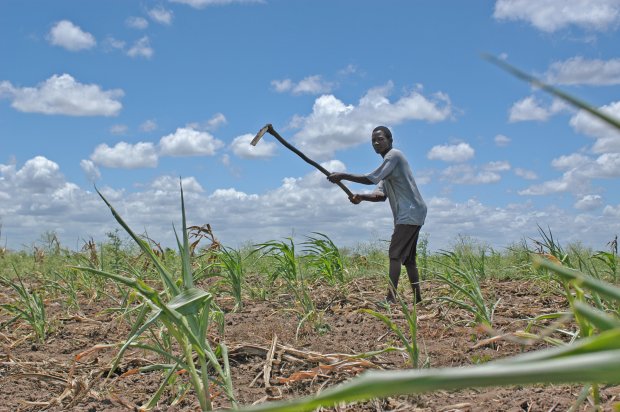
Gambia’s President-elect Adama Barrow said Thursday his inauguration would take place at the Gambian Embassy in neighboring Senegal, as longtime leader Yahya Jammeh refused to give up power.
He made the announcement on Twitter, where shortly after midnight he declared Jammeh’s presidency “officially over.”
“The new era of Gambia is here at last,” Barrow said.
The inauguration was initially to take place Thursday in Gambia’s capital, Banjul.
Barrow won the country’s December 1 election. Jammeh, who once vowed to rule Gambia for “a billion years,” initially accepted the results, but changed his mind citing alleged voting irregularities.
Gambia’s neighbors in West Africa are trying to help resolve the situation.
Mauritania’s President Ould Abdel Aziz held talks with Jammeh, and then went to Senegal late Wednesday to meet with Barrow. Aziz told reporters he is “less pessimistic” about a peaceful outcome after talks with both men.
Troops from the Economic Community of West African States (ECOWAS) were waiting Thursday on the Senegal-Gambia border.
Liberia is the current ECOWAS chair. Liberian Information Minister Eugene Nagbe told VOA that military force is always the last resort, but that all options are on the table.
Nagbe said Barrow won the election freely and fairly and that ECOWAS encourages Jammeh to respect the Gambian constitution.
“ECOWAS’ position is very clear, that the mandate of the Gambian people … as expressed in the election … must be respected,” Nagbe said. “On Thursday, President-elect Barrow will be inaugurated and he will be recognized not just by ECOWAS but also by the African Union and the rest of the world.”
Gambian army Chief Ousman Badjie told the French news agency Wednesday that his men will not resist other African forces if they cross the border.
“This is a political dispute,” he said. “I am not going to involve my soldiers in a stupid fight.”
With tension and uncertainly hanging thickly in the air, much of the Gambian capital of Banjul was deserted Wednesday. Some tourists boarded special flights out of the country and crowded onto ferries to neighboring Senegal, but other remained behind at resort hotels.
Jammeh, who had seized power in a 1994 coup, retained his office in a series of elections until last month’s ballot.
Many Gambians say they are more than ready for a change in leadership.
Amnesty International and other major human-rights groups accuse Jammeh of having little tolerance for dissent; they say he has killed or jailed many opponents.
He also has threatened to murder homosexuals, and once ordered the kidnapping more than 1,000 villagers accused of being witches. They were forced to drink a vile liquid that sickened them.


